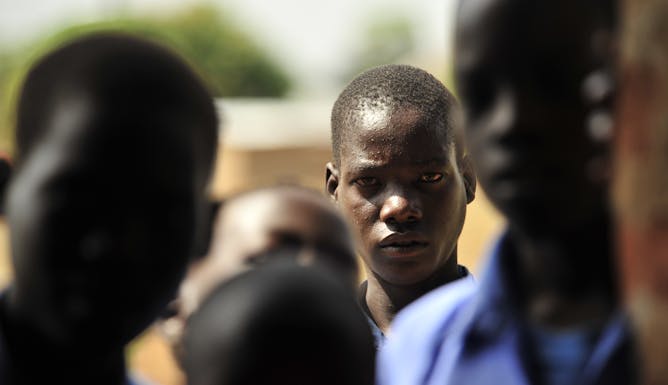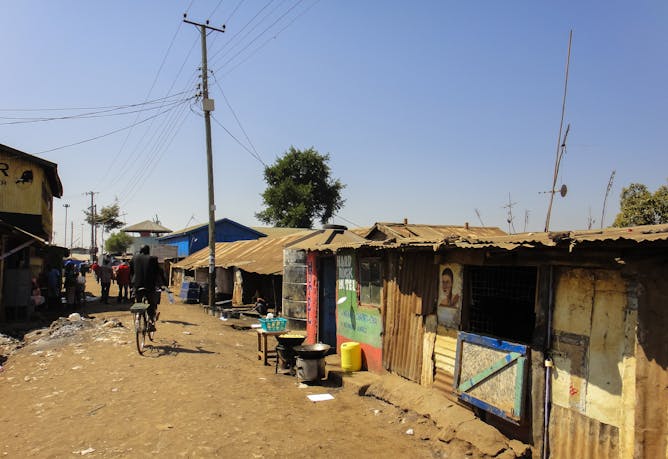|
It's all too common for sexual violence to be used as a weapon in war zones and spaces of conflict. This is true of groups like Boko Haram in Nigeria and of the dreaded Lord's Resistance Army in Uganda. But what of those groups that don't employ this strategy - and actively prevent their members from engaging in predation? Angela Muvumba Sellström explores the examples of two rebel armies from Burundi and Uganda.
Access to electricity remains a pipe dream for many people in countries across Africa - even those in urban areas close to existing power grid infrastructure. Rebekah Shirley discusses what might be done to help those who are energy-poor.
Today is the last day our reader survey will be open. If you’ve filled it in already, thank you! We appreciate your inputs enormously. If you haven’t, please do. We’d love to learn more about you and your interests. You can find the survey here.
|

Dedication Ceremony at St. Theresa secondary school in Lira, Uganda, 2009. Students were forced to move away from a region taken by the Lord’s Resistance Army.
Jesse Awalt/Flickr
Angela Muvumba Sellström, Fondation Maison des Sciences de l'Homme (FMSH) – USPC
Not all rebel armies use rape and sexual violence as a weapon. Some have actually designed ways to prevent such atrocities. How and what can we learn from them?
|

Millions of people without electricity access in Africa live close to existing power grid infrastructure.
Shutterstock
Rebekah Shirley, Strathmore University
There are millions of energy poor people in sub-Saharan Africa who live in cities.
|
Politics + Society
|
-
Garth Frazer, University of Toronto
The top U.S. foreign policy goals in Africa evidently no longer relate to human rights or democratic freedoms, but to protecting tiny, marginal American industries.
|
|
Education
|
-
Keyan Tomaselli, University of Johannesburg
Bureaucracy is necessary to manage large institutions. But it can also alienate researchers from their field or discipline.
|
|
Business + Economy
|
-
Olorunjuwon Samuel, University of the Witwatersrand
Corporates are willing to embrace corporate social responsibility initiatives. But many fail due to cultural insensitivity and misplaced communication strategies.
|
|
From our international editions
|
-
William M. LeoGrande, American University School of Public Affairs
Cuba has a new president — and for the first time in six decades his last name is not Castro. Who is Miguel Díaz-Canel, the man who inherits a Cuba born of Fidel's 1959 revolution?
-
John Gaffney, Aston University
Donald Trump, Emmanuel Macron and Theresa May all have something to prove at home by bombing Syria.
|
|